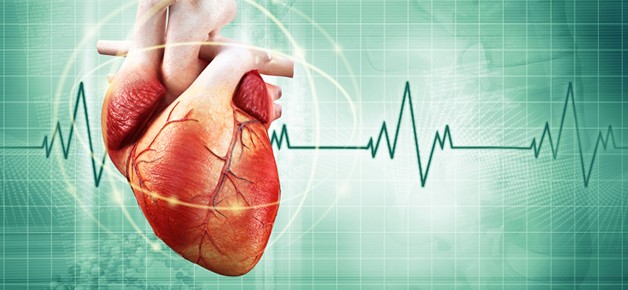After leaving the hospital, you will need to follow the advice of your healthcare team so that you can recover as quickly as possible.Care after bypass surgery aims to reduce the risk factors for heart disease and includes strategies to help patients and family members to stop smoking, control high blood pressure, improve cholesterol levels, begin exercising regularly, and reduce stress. Some of these changes can be made by adjusting lifestyle habits through diet and exercise. Depending on your surgery, your chest incision may extend through layers of skin, muscle and bone. Your skin should be healed by the time of discharge, your breastbone should take six to eight weeks, and your scar should fade in approximately six months to one year. Tingling, itching, and numbness are normal sensations associated with surgical wounds and will eventually disappear.
Self-care
You should have someone stay with you in your home for at least the first 1 to 2 weeks after surgery.
Do the breathing exercises you learned in the hospital for 4 to 6 weeks.
Shower every day, washing the incision gently with soap and water. Do NOT swim, soak in a hot tub, or take baths until your incision is completely healed. Follow a heart-healthy diet.
If you feel depressed, talk with your family and friends. Ask your health care provider about getting help from a counselor.
Continue to take all your medicines for your heart, diabetes, high blood pressure, or any other conditions you have.
- Do not stop taking any medicine without first talking with your health care provider.
- If you are taking a blood thinner, such as warfarin (Coumadin), you may need to have extra blood tests to make sure your dose is correct.
Activity
Stay active during your recovery, but start slowly.
- Do not stand or sit in the same spot for too long. Move around a little bit.
- Walking is a good exercise for the lungs and heart after surgery. Do not be concerned about how fast you are walking. Take it slow.
- Climbing stairs is OK, but be careful. Balance may be a problem. Rest halfway up the stairs if you need to.
- Light household chores, such as setting the table, folding clothes, walking, and climbing stairs, should be OK.
- Slowly increase the amount and intensity of your activities over the first 3 months.
- Do not exercise outside when it is too cold or too hot.
- Stop if you feel short of breath, dizzy, or any pain in your chest. Do NOT do any activity or exercise that causes pulling or pain across your chest, such as using a rowing machine or weight lifting.
- Keep your incision areas protected from the sun to avoid sunburn.
Do not drive for at least 4 to 6 weeks after your surgery. The twisting involved in turning the steering wheel may pull on your incision. Ask your provider when you may return to work, and expect to be away from work for about 6 to 8 weeks.
Do not travel for at least 2 to 4 weeks. Ask your provider when travel is OK. Also ask your provider before starting sexual activity again. Most of the time it is OK after 4 weeks.
You may be referred to a formal cardiac rehabilitation program. You will get information and counseling regarding activity, diet, and supervised exercise.
Wound Care
For the first 6 weeks after your surgery, you must be careful about using your arms and upper body when you move.
- Do NOT reach backwards.
- Do NOT let anyone pull on your arms for any reason — for instance, if they are helping you move around or get out of bed.
- Do NOT lift anything heavier than 5 to 7 pounds.
- Do NOT do even light housework for at least 2 to 3 weeks.
- Check with your provider before using your arms and shoulder more.
Brushing your teeth is okay, but do not do other activities that keep your arms above your shoulders for any period of time. Keep your arms close to your sides when you are using them to get out of bed or a chair. You may bend forward to tie your shoes. Always stop if you feel pulling on your breastbone.
Call Your Doctor If:
- You have chest pain or shortness of breath that does not go away when you rest.
- You have dizziness, fainting, or you are very tired.
- You have a severe headache that does not go away.
- You have problems taking any of your heart medicines.
- Your weight goes up by more than 2 pounds in a day for 2 days in a row.
- Your wound changes. It is red or swollen, it has opened, or there is more drainage coming from it.
Resource links:
- https://medlineplus.gov/ency/patientinstructions/000102.htm
- http://www.uptodate.com/contents/recovery-after-coronary-artery-bypass-graft-surgery-cabg-beyond-the-basics
- http://www.cts.usc.edu/hpg-takingcareofincisionsafterheartsurgery.html


